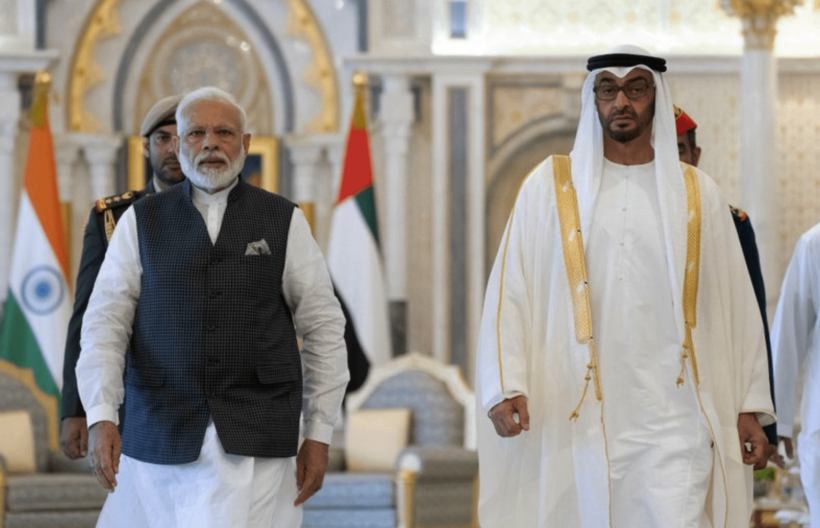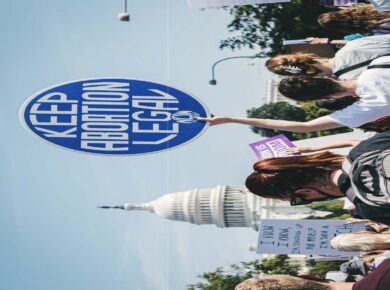Disclaimer: This post reflects solely the opinion of the authors and should not be taken to represent the general views of IPPR’s management/ editorial team or those of fellow authors
In 2022, the United States Commission on International Religious Freedom (USCIRF) released its annual report. Once again India was designated as a ‘country of particular concern’ (CPCs) in relation to the issue of religious freedoms. The USCIRF recommended that the Biden administration imposes targeted US sanctions on individuals and organisations who engage in “severe violations of religious freedom by freezing those individuals’ or entities’ assets and/or barring their entry into the United States.”
This is not the first time that Delhi has been accused of infringing upon the rights of religious minorities under the government of Narendra Modi’s Hindu nationalist Bharatiya Janata Party (BJP). This is the third consecutive year (2020, and 2021) that the religious freedom panel has recommended the designation of India as a CPC.
However, Delhi has time and again denied these allegations. The strongly-worded report elicited a formal response from Delhi. On June 3, 2022, the Ministry of External Affairs (MEA) released a statement in response to media queries concerning the USCIRF report. The official spokesperson Shri Arindam Bagchi defended India as a “pluralistic society” wherein religious freedom is of paramount importance. In the same statement, the government emphatically rejected comments made by US officials in response to the report, saying: “It is unfortunate that vote bank politics is being practised in international relations. We would urge that assessments based on motivated inputs and biased views be avoided.”
But following demeaning comments by a BJP official, Delhi is once again under fire and dealing with significant diplomatic backlash within the global community.
Fragile Bilateral Relations Between India and the Arab World
Following controversial comments against Prophet Muhammad and his marriage, by a spokesperson for the ruling government, Ms Nupur Sharma, and an incendiary tweet over the situation by Mr Naveen Kumar Jindal, a row has sparked between India and its Gulf partners.
As a senior official for the BJP, her remarks on a nationally televised debate and news program have rapidly created major rifts between the government and Muslim citizens in India and abroad. The uproar soon reached the governments of critical Gulf trade partners, including Kuwait, Oman, Saudi Arabia, Qatar and more.
Image Source: Reuters
Currently, India is dealing with intense backlash within the global community over the violation of minority rights, especially those of the Muslim populace. Over ten states have lodged official protests against the anti-Muslim sentiment in the country. Iran, Qatar and Kuwait summoned Indian envoys and demanded public apologies. This unfortunate diplomatic failure for the government also comes amid the high profile Indian Vice-Presidential visit to Doha. Mr Venkaiah Naidu landed in Qatar on June 4, 2022, on his third leg of a three-nation tour accompanied by a high-level delegation. Currently, Qatar’s foreign development investments in India exceed USD 450 million. This visit is set to improve upon trade developments and enhance Qatar’s investments. During a business forum, a Start-Up Bridge was inaugurated by the Vice President which is set to increase opportunities for two-way investments in both the states. This visit is therefore crucial for Delhi’s trade and economic interests.
Responding to Qatar’s summoning of the envoy to the foreign ministry and its demand for a public apology, Mr Deepak Mittal, the Indian ambassador to Qatar, dismissed the demeaning comments as “fringe elements” which should not be taken to represent the views of the Indian government in any way.
Other Muslim majority countries like Pakistan and the Taliban regime in Kabul have also taken this opportunity to condemn the incident. Pakistani leadership called on other states to take note of a growing anti-Muslim sentiment in India. But Delhi was quick to hit back at Islamabad, highlighting the irony of a “serial violator of minority rights” speaking out on minority rights in another sovereign state.
Image Source: Twitter
The Importance of Relations between Delhi and its Gulf Partners
The Gulf Cooperation Council (GCC) is a pivotal partner in India’s trade interests abroad. Several aforementioned states which have come out against India are member states in the Council. This backlash could have serious implications for multilateral and bilateral trade relations. Further, it could also cast a shadow over the diplomatic breakthroughs between India and the Arab world over the past few years. After Prime Minister Modi’s ascent to power India’s relations with Gulf nations has improved considerably. Prime Minister Modi attended the inauguration of the first Hindu temple in Abu Dhabi, UAE in 2018. In 2020-2021, the trade between India and the GCC yielded $87 billion. A large diaspora in the Gulf nations contributes to India’s foreign income from abroad. Gulf states are a popular destination for a vast majority of Indian migrant workers. Additionally, India sources its energy requirements through imports from this region. A free trade agreement has been signed between India and UAE, with the possibility for expansion into wider deals. Further, after the trending hashtags on Twitter calling for the boycott of Indian products, reports of the removal of Indian goods from grocery stores and supermarkets in the Gulf region have surfaced.
Delhi is also hosting the first-ever visit of the Iranian Foreign Minister; Hossein Amir-Abdollahian. In his meetings with Prime Minister Modi and External Affairs Minister Mr S. Jaishanker, Delhi and Tehran reviewed their bilateral cooperation concerning trade and cultural ties and held discussions about the Iran nuclear deal, and the current crises in Kyiv and Kabul. In light of these diplomatic and economic developments, this incident can potentially create pushback.
In a Damage Control Frenzy
This diplomatic catastrophe has left representatives of the Indian government scrambling for damage control measures. Following outrage by the Arab world, the party spokeswoman was suspended. In addition, Mr Naveen Kumar Jindal, who formerly served as head of BJP’s Delhi Media, has been expelled. Both leaders have issued public apologies, stating that it was not their intention to hurt religious sentiments. On June 9, 2022, the Delhi police also registered a complaint against a suspended Ms Sharma, something that Muslim political leaders and citizens in the country had been demanding ever since her nationally televised comments went viral.
While responding to several different states and organisations, the government has reiterated that respect for all religions is a key belief of the Indian government. It has also repeatedly denounced the ‘politically motivated’ and ‘divisive motives’ of organisations like the Organisation of Islamic Cooperation (OIC). The OIC, while expressing displeasure over the incident, alleged that India is fostering an anti-Muslim environment with systematic harassment of minorities. In its response to the media queries regarding the statements made by the OIC, spokesperson Shri Arindam Bagchi said, “We would urge the OIC Secretariat to stop pursuing its communal approach and show due respect to all faiths and religions.”
The global outpouring of outrage has been accompanied by protests and calls for the arrest of the spokespersons. The situation is worsening, with both former BJP leaders reportedly having received death threats. The long-term consequences of this incident on India’s global standing, as well as its relations with the Arab world, are yet to be seen.
By Antara Basu,
Antara is a first-year BSc Politics and International Relations student at UCL. She enjoys exploring Identity Politics and International Conflict and Security.








